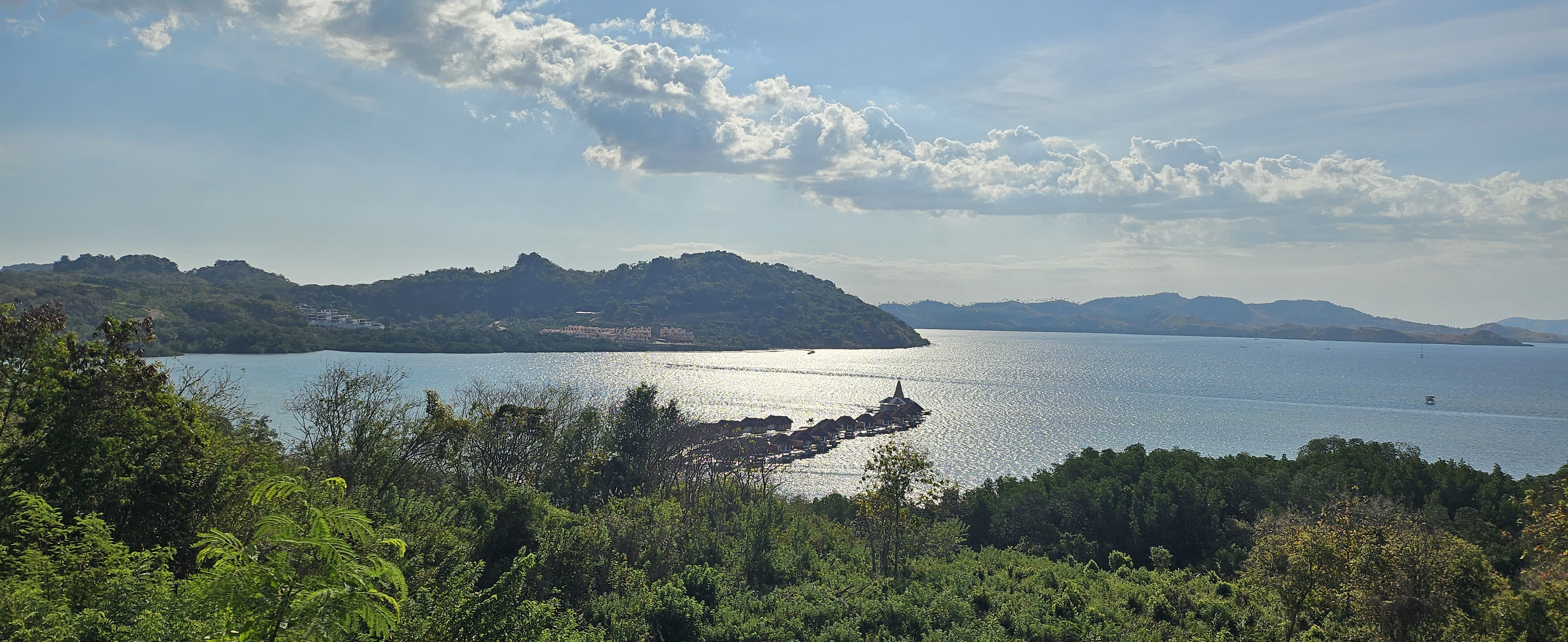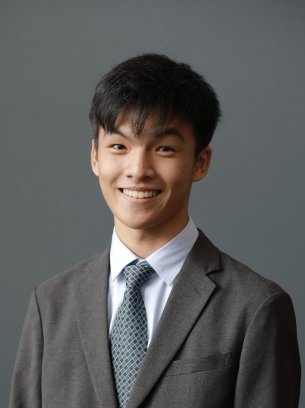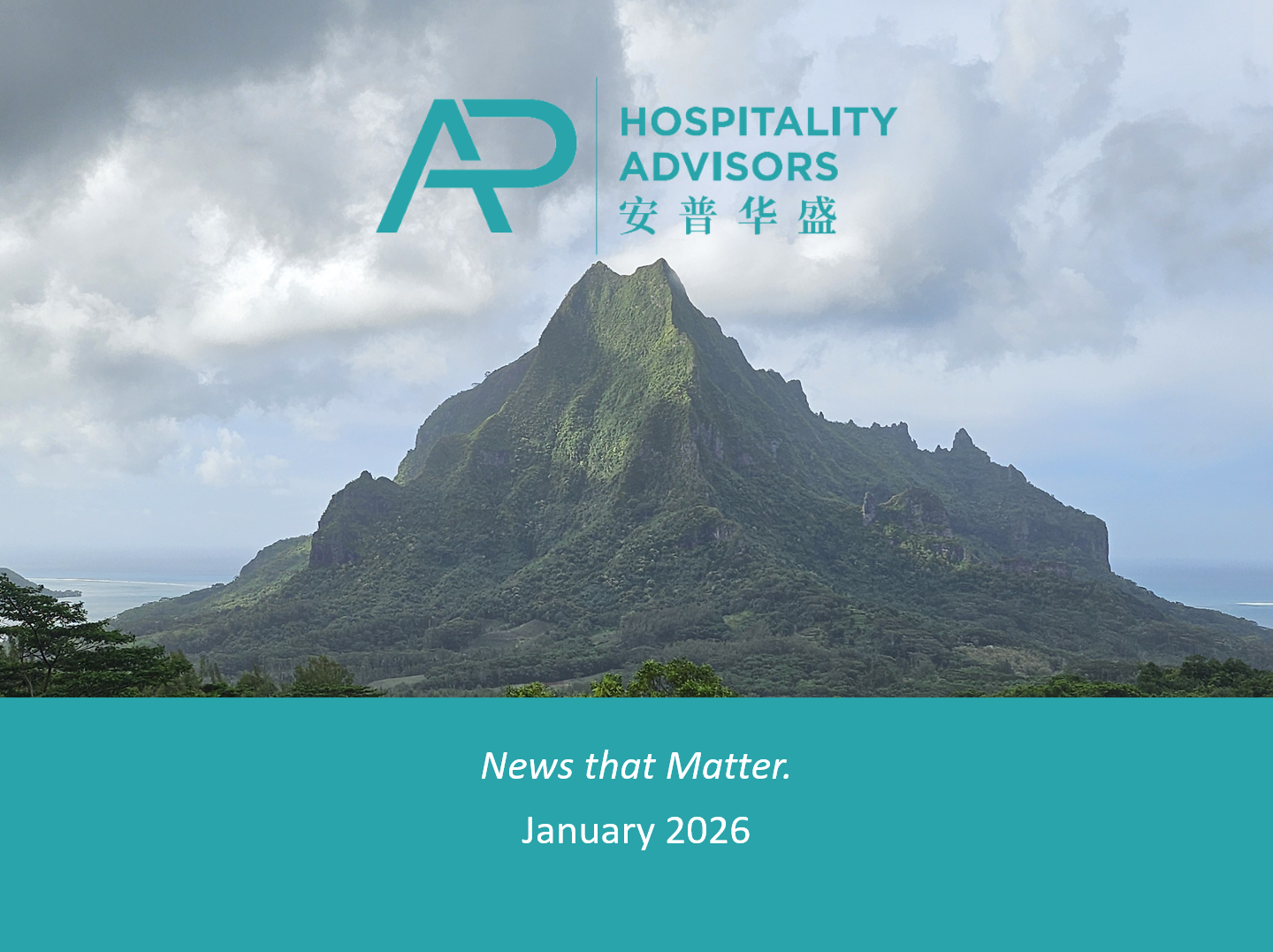AP COVID Hospitality Bulletin Asia Pacific - March 2021

A Tribute to Mr. Arne M Sorenson: On 15 February 2021, Mr. Sorenson passed away at the age of 62 as he had been bravely battling pancreatic cancer since 2019. As the third CEO of Marriott International, Mr. Sorenson was a respected hotelier who was a visionary and an inspiration to many. Spanning across 8 years’ time as the group’s president, Mr. Sorenson remarkably reshaped and accelerated the company’s outlook and growth. Notably the US$13 billion merger with Starwood Hotels and Resorts Worldwide under his leadership significantly revamped Marriott’s portfolio in claiming a significant competitive force in the industry. His dedication and passion for the hotel industry will be dearly missed and forever remembered.
Updates:
ASEAN
- In early March, members of the Association of Southeast Asian Nations were assessing the possibility to introduce a digital COVID-19 vaccine certificate as Asia countries hope to revitalize the region's tourism activities during the ASEAN Economic Ministers meeting. However, the roll out heavily depends on the implementation of vaccinations. Similar to the Digital Green Pass that was proposed in the European Union, the ASEAN certificate should gradually enable people to move safely for work or tourism in order to kick off the economic recovery across the region’s borders.
- According to data from the ASEAN Secretariat, intra-region visitor arrivals of 51 million were recorded in 2019, which accounted for 36% of the bloc's total pre-COVID. It is vital that countries are working together to speed up the opening of sectors that were hit critically, such as the tourism industry.
Australia
- Exports of 250,000 COVID vaccines from AstraZeneca to Australia were blocked by the Italian government. The sanction was due to the company's delay in supplying promised vaccine doses to Italy and the European Union, while Australia is not considered a "vulnerable" nation by the EU (CNN). Although this export ban does not affect humanitarian aid or COVAX, the sanctions will slow down the rollout of national vaccinations in Australia.
- Qantas Airways is launching an innovative campaign of ‘mystery flights’ to boost domestic travel as the Australian government announced an extended international travel ban until at least June 2021. As the Australian flag carrier, Qantas will be offering 3 mystery flights each from Brisbane, Melbourne and Sydney, that will take the travelers to an unknown destination for a day trip. Passengers can then guess the arrival location on the plane using the flight path. The private charter package includes breakfast in the Qantas lounge of departure city, inflight dining, and personalized activities for the destination.
Cambodia
- Cambodia announced lockdown measures for parts of its capital Phnom Penh on 20 February due to an outbreak of positive cases with a majority from Chinese nationals. All residents in the lockdown neighborhoods must undergo testing and two weeks of quarantine.
- Cambodia was one of the first countries to receive AstraZeneca SII vaccines through the COVAX Facility on 2 March. The 324,000 doses were the beginning of a total of 1.1 million doses to be expected via COVAX by the end of May in cooperation with WHO and UNICEF. Vaccinations should reach seven million by the end of the year.
- On 3 March, Hong Kong-listed NagaCorp temporarily closed down NagaWorld after 11 employees were tested positive. NagaCorp is the sole operator of casinos in the Cambodian capital of Phnom Penh.
- As of March, Sihanoukville imposed a “No In and No Out” order which only authorized cargo and goods vehicles, ambulances, and security services to mobilize in the city, in response to an escalated resurgence of COVID-19 with over one hundred cases in the past week. The first detected local case was located at the Jin Bei Hotel from a Chinese guest.
Japan
- As infection cases progressively declined, Japan lifted the COVID-19 state of emergency that was in place from January for six prefectures (Aichi, Gifu, Osaka, Kyoto, Hyogo and Fukuoka) on 7 March, with the exception for Tokyo, Kanagawa, Saitama and Chiba were it remains in force for another 2 weeks until 21 March.
- The Olympics are scheduled to kick off on 23 July and Japan will temporarily suspend exemptions allowing foreign athletes to train in the country before the Tokyo Games as early as April. However, this heavily depends on when the current state of emergency will be fully lifted. Olympic athletes will not be required to quarantine on arrival, but they must be restricted to their accommodation and sports venues. The Tokyo Olympic organizing committee will release a decision on foreign spectators by the end of March, though chances seem slim.
The Philippines
- As of March, the Philippines government announced uniform travel protocols with the aim to revive domestic tourism due to consistently low visitor arrivals at major destinations such as Boracay since reopening at the end of 2020. The new rules imply that not only health certificates are no longer needed, quarantine will not be mandatory unless local travelers exhibit COVID-19 symptoms upon arrival. .COVID testing might still be required at local government unit’s discretion. With the easing of domestic travel restrictions, the government hopes to boost the overall economy and spur the recovery of domestic tourism that has been suppressed since the onset of COVID-19 in March 2020.
- Metro Manila and nine other areas in the country will remain under general community quarantine through March, while the rest will be under modified general community quarantine. Some authorities voiced concerns on relaxed travel restrictions as confirmed cases of the South African variant were rising with six cases recorded on 6 March, which also registered the highest single-day tally in the past five months with 3,045 cases.
Transactions that matter.
1. Beijing Fraser Suites International Apartment
- Situated within the China World Trade Centre commercial hub, Beijing Fraser Suites offers 357 serviced apartment units. The property is located within walking distance to the historic Forbidden City, office towers and shopping malls.
- Announced on 21 January 2021, Frasers Property’s subsidiary Excellent Esteem sold its entire shareholding interest in Beijing Fraser Suites for CNY1.6 billion to a joint venture company, Shanghai Fu Ting Qi Ye with Tishman Speyer RMB Funds and Shanghai Dowell Trading.
- As a leading serviced apartment operator in China, Fraser Property China currently has 16 properties under management with two due for completion in 2021 in Nanjing and Guangzhou.
2. Somerset Xu Hui Shanghai & Ascott Guangzhou
- Completed in 1999, Somerset Xu Hui Shanghai is a mixed-use development featuring a 168-unit serviced apartment and a 5-storey commercial podium located in a prime residential neighborhood of Shanghai. Singapore-listed hospitality trust, Ascott Residence Trust (ART), announced to sell it at 171% above its book value.
- Ascott Guangzhou is located in the financial district of Tianhe in Guangzhou. It features 207 units of luxury residences surrounded by Grade-A offices, retail and F&B outlets. This asset was sold approximately 52% and 81%, respectively, higher than the book value and acquisition price paid by The Ascott Limited in 2012.
- ART’s portfolio currently includes properties across China, notably Somerset Grand Central Dalian, Somerset Heping Shenyang and Somerset Olympic Tower Tianjin, as well as, 16 other assets in France.
- In enhancing the overall trust’s returns, the sales were part of ART’s portfolio reconstitution plan to unlock net gains from strong underlying property values and focus its capital on higher-yielding assets.
3. Weave Living in Mid-Levels West
- Previously known as the Shama Midlevels and subsequently Mier Serviced Apartments, Weave Living acquired the en-block residential building on 6-8 Hospital Road for HK$295 million in December 2020. Scheduled to begin operations in the third quarter of 2021, this building will be rebranded into a multi-family rental accommodation with a total GFA of 20,430 square feet. This will be the first project in Weave Living’s portfolio where it taps into the traditional rental housing market in a high-end residential district of Hong Kong.
- Founded in 2017, Weave Living has established its footprint in Hong Kong with five locations, managing 540 rooms as of March 2021. The company was rebranded in 2020 from Weave Co-Living to Weave Living with the intent to appeal to a broader audience across co-living, serviced apartment and multi-family residential tenants. Since the rebranding, Weave Suites Central West was the first to open in Sai Ying Pun in February 2021 with suites that are designed for dual occupancy and more privacy than co-living units. Entry suite rental rate starts at HK$15,900 per month.









